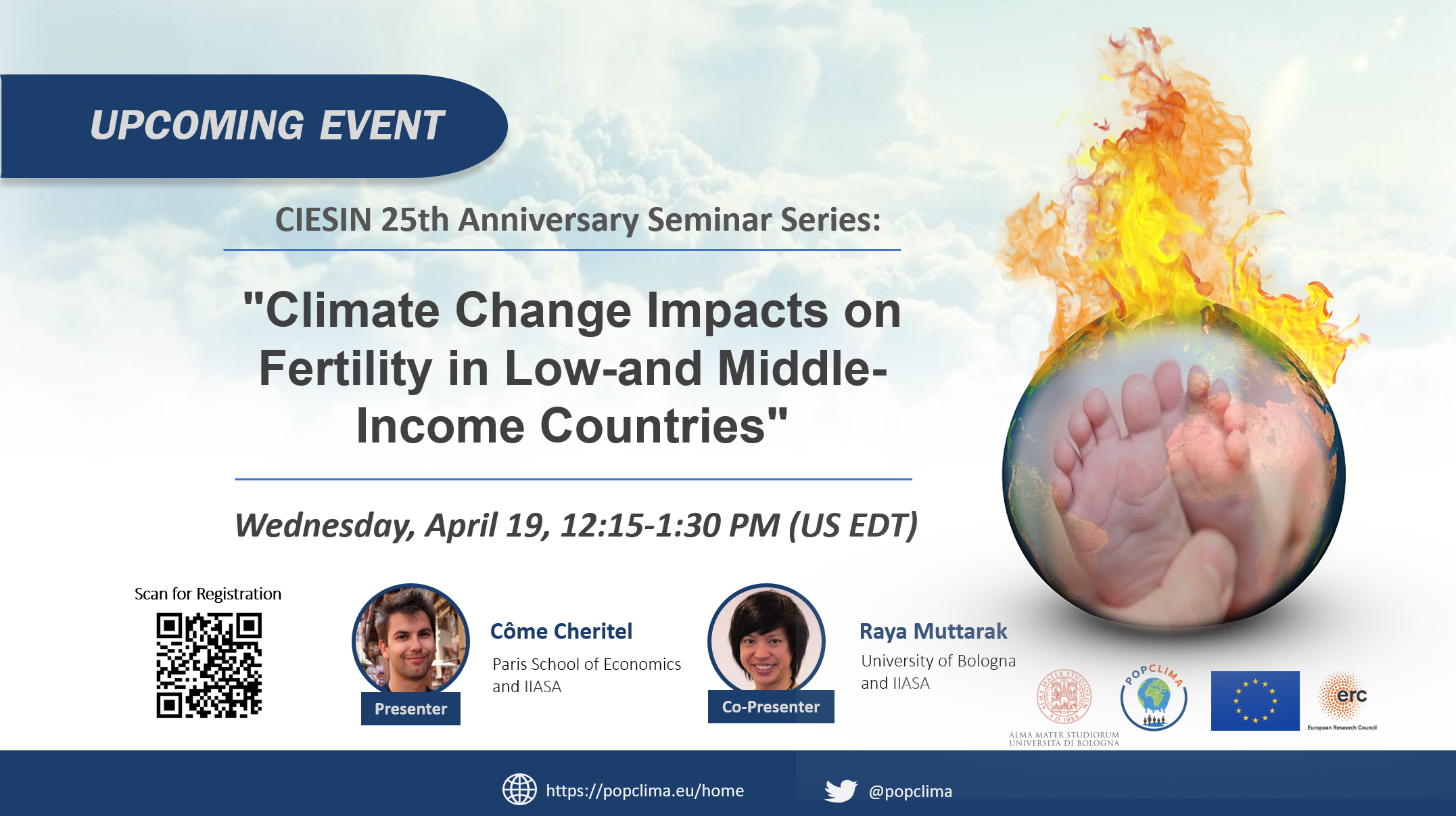
Published At: 28 Mar 2023

Feel free to join us remotely for this webinar, co-presented by Raya Muttarak, former chair of the PERN scientific committee.
CIESIN 25th Anniversary Seminar Series: "Climate change impacts on fertility in low- and middle-income countries"
Wed, April 19, 12:15-1:30pm US EDT
Presenter: Côme Cheritel: Paris School of Economics, ENPC, France, and International Institute for Applied Systems Analysis, Austria.
Co-Presenter: Raya Muttarak: International Institute for Applied Systems Analysis, Austria, and University of Bologna, Department of Statistical Sciences, Italy
Abstract
Climate change has already affected human health and wellbeing. It is thus also possible that it may directly or indirectly affect reproductive health and fertility. Few existing studies on the impact of climate variability or extreme climatic events on fertility focusing on a single country/location case study present inconsistent findings with negative climatic conditions leading to an increase in fertility on the one hand, and fertility decline on the other. To date, there are no comprehensive cross-national empirical studies on the impacts of global warming on fertility which are fundamental for tackling inconsistency in the findings. To perform such analysis, harmonised data for a large number of countries are required. In particular, data with a temporal and spatial granularity allowing matching of local climatic conditions with the outcome of interest i.e., fertility, are needed. Such data, however, are not yet readily available given a lack of data structure that is suitable (or easily adaptable) to deal with this problem. While the census data can be used to derive fertility statistics, the data are collected over a rather large time interval – often every 10 years – making it impossible to detect the effects of climate change on fertility behaviour in a robust manner. Likewise, fertility statistics are mainly available on a national scale, which masks regional heterogeneities that are of relevance to capturing the local climate impact. In order to address this issue, this study aims to produce a database of total fertility rate and age-specific fertility rate at the subnational level on a monthly and annual basis.
More information and registration here